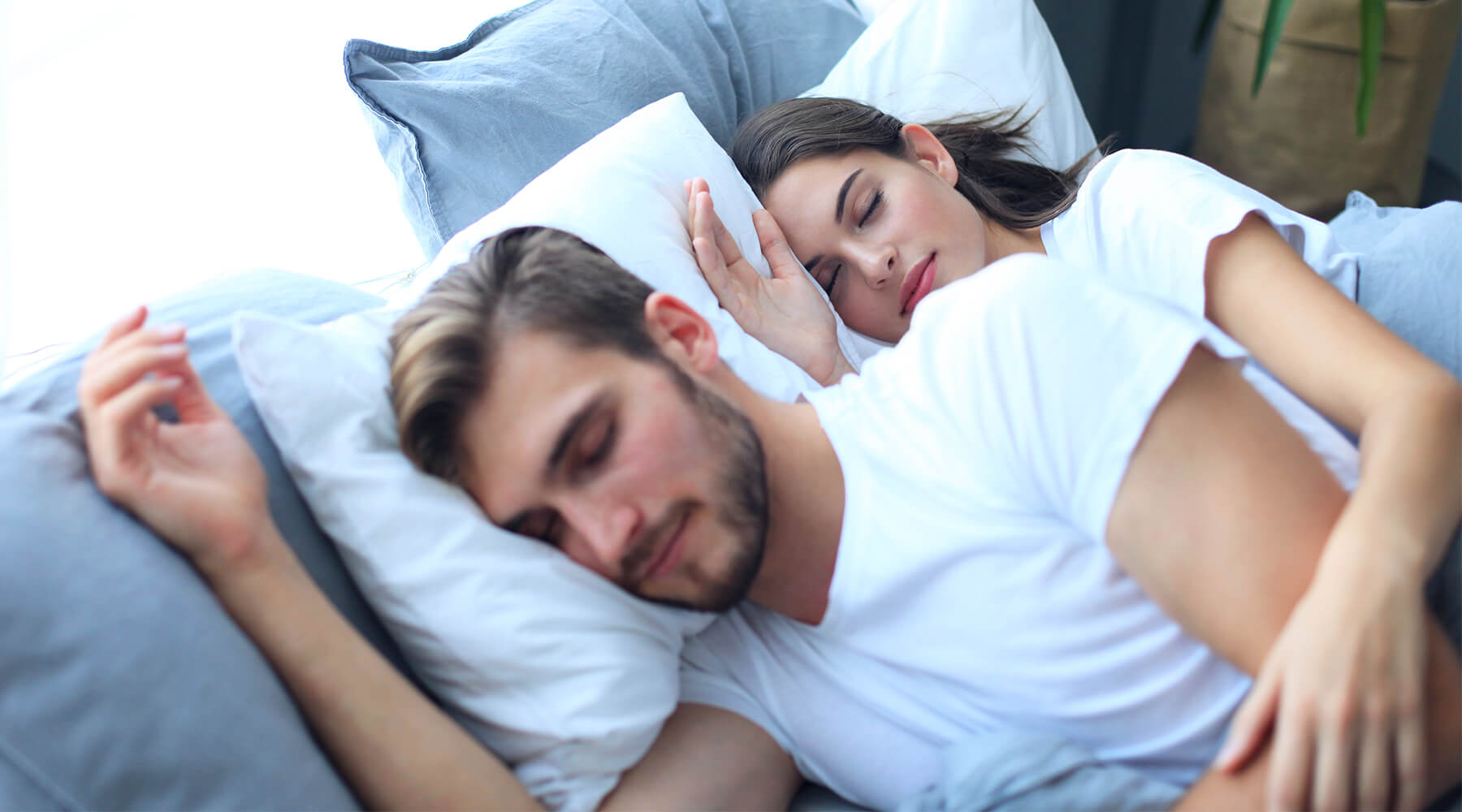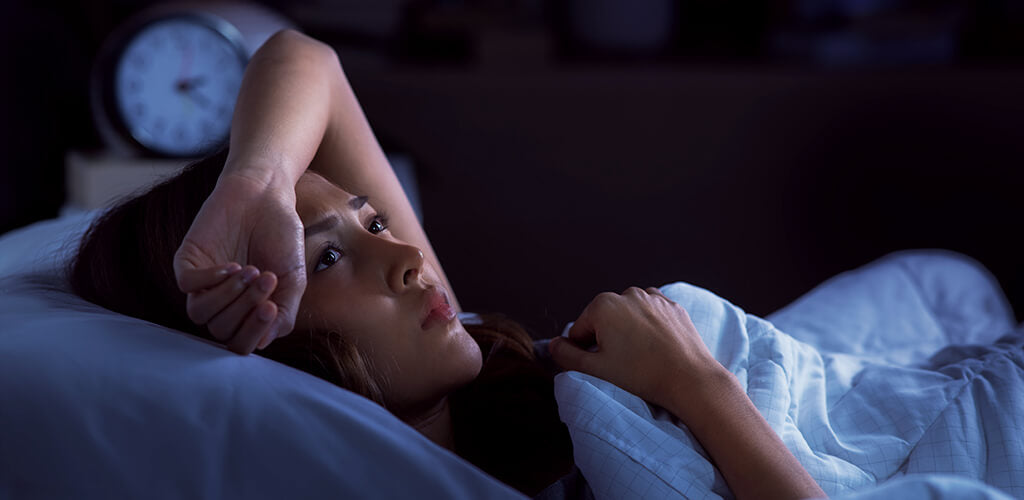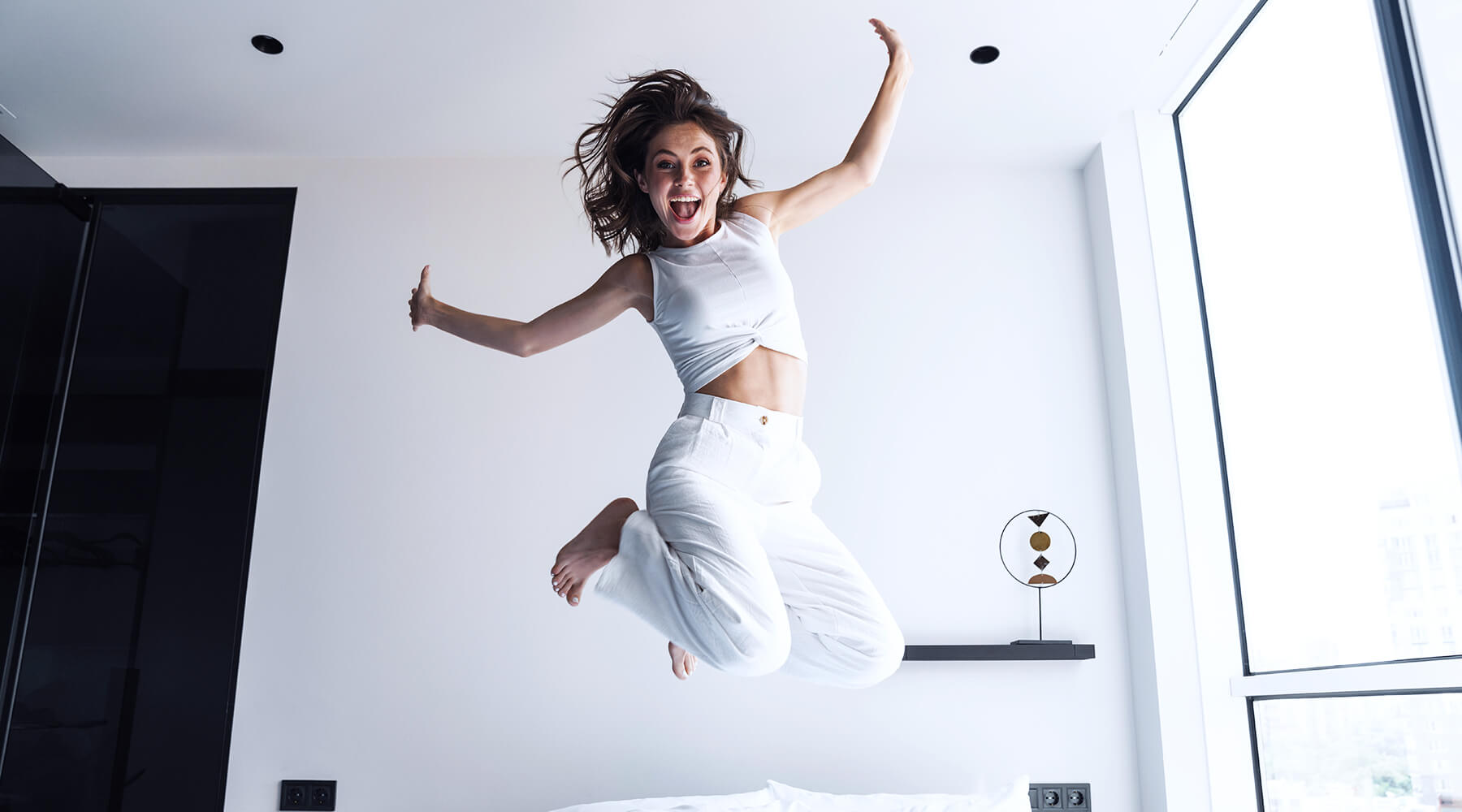
Do women sleep differently than men?
Common stereotypes say that men simply sleep deeply and soundly, while women not only get up earlier but also wake up constantly during the night—but is that true? We'll explain how our gender is related to our sleep and whether women really do sleep worse than men.
Table of contents
- The Sexes & Sleep
- Sleep duration: Do women sleep longer than men?
- Sleep quality: Do women sleep better than men?
- Lack of sleep: Do women suffer more from lack of sleep?
- Sleep remains individual
- Conclusion
1. Gender & Sleep
We all sleep for about a third of our lives and generally need around seven to nine hours of sleep per night to feel fresh and rested in the morning. How much sleep What we exactly need depends, among other things, on our genetic predisposition, our Chronotypes, our age, but also our gender. While around 65% of women suffer from sleep disorders, only about 20% of men are affected. But how exactly do female and male sleep behaviors differ, and who sleeps "better" overall?
2. Sleep duration: Do women sleep longer than men?
Scientific studies have shown that, on average, women need slightly more sleep than men. To wake up feeling fully rested and refreshed, women need an average of 20 minutes more sleep per night.
One possible reason for the increased need for sleep is that the female brain performs more complex tasks during the day, and due to many different tasks, stress, or multitasking, different brain areas are generally more closely connected. This flexible functioning costs the body a lot of energy, and a woman's brain therefore needs longer to fully recover at night than a man's. Of course, this doesn't mean that women think more or better than men—they simply think differently.
3. Sleep quality: Do women sleep better or worse than men?

Women generally sleep worse than men and suffer more frequently from Sleep disorders. Studies in recent years have also scientifically proven this. Women's sleep is generally lighter and more prone to disruption than men's. Women also take longer on average to fall asleep. wake up more often at night and can rarely return to restful sleep, which significantly affects sleep quality. There can be several reasons for this.
Greater alertness
One possible reason for the sensitivity of female nighttime sleep is the evolutionary development that required women, as former "wards," to be more alert at night and react more quickly to potential dangers and disturbances such as noise, movement, or light during sleep. The female nervous system is thus activated more quickly and reacts more strongly to external stimuli, which makes sleep more easily disturbed and leads to frequent awakenings during the night.
Hormone balance/Female cycle
The female cycle, in particular, has a strong influence on sleep patterns. During the monthly cycle, during pregnancy and breastfeeding, and also in old age during menopause, the female hormone balance fluctuates significantly, affecting numerous bodily functions, the psyche, and sleep patterns.

Many women struggle with sleep problems, especially in the first half of their cycle, because this is when the level of the hormone progesterone, which has a sleep-promoting and relaxing effect, drops. Typical symptoms such as abdominal pain, cramps, bad mood, or hot flashes can place additional strain on the body and increase daytime fatigue. Not only the physical or bodily symptoms themselves, but also the associated stress can hinder restful sleep. This is because additional stress hormones such as cortisol are released, which act as an antagonist to the hormone sleep hormone melatonin directly affects sleep-wake regulation and stands in the way of restful sleep.
The female psyche
Our psychological state also has a major influence on how we sleep. Women are almost twice as likely to suffer from depression, anxiety, or the stress and worries of everyday life – all factors that are also linked to insomnia and Sleep disorders and prevent the body from getting enough rest and sleeping peacefully.
4. Lack of sleep: Do women suffer more from lack of sleep than men?
lack of sleep It is particularly detrimental to our daily performance and our health, but ultimately has a negative impact on numerous other areas of life. Studies show that men generally suffer less from sleep deprivation than women. Women tend to be more emotionally affected and are more sensitive to stress, insomnia, and the consequences of lack of sleepIn addition, the female body and the brain, which are heavily stressed during the day, need sufficient rest at night in order to be able to cope with the challenges of everyday life and to endure hormonally-related problems.
5. Sleep remains individual
 Our sleeping habits are extremely complex and depend on numerous factors that can influence our sleep to varying degrees. Women, in contrast to men, are somewhat more likely to face the challenge of getting a sufficiently long and restful sleep despite hormonal fluctuations, increased sleep needs, or a lack of sleep depth. Therefore, women can certainly go to bed a little earlier or sleep a few minutes longer than their men. While men may sleep better overall, they are more likely to suffer from breathing disorders and snoring at night. These familiar clichés do have a kernel of truth and demonstrate how important it can be, especially within a relationship, to pay attention to different sleep needs – so that we can all sleep well and start a successful day together with renewed energy!
Our sleeping habits are extremely complex and depend on numerous factors that can influence our sleep to varying degrees. Women, in contrast to men, are somewhat more likely to face the challenge of getting a sufficiently long and restful sleep despite hormonal fluctuations, increased sleep needs, or a lack of sleep depth. Therefore, women can certainly go to bed a little earlier or sleep a few minutes longer than their men. While men may sleep better overall, they are more likely to suffer from breathing disorders and snoring at night. These familiar clichés do have a kernel of truth and demonstrate how important it can be, especially within a relationship, to pay attention to different sleep needs – so that we can all sleep well and start a successful day together with renewed energy!
6. Conclusion
-
Women suffer from sleep disorders almost twice as often as men and need an average of 20 minutes more sleep per night so that the brain, which is subject to more complex demands during the day, can regenerate sufficiently.
-
The female hormonal balance, the psyche and evolutionary characteristics make female sleep more difficult and lead to women having difficulty falling asleep, waking up more easily and sleeping less restfully
-
Overall, women sleep worse than men and suffer more frequently from sleep disorders, difficulty falling asleep or difficulty staying asleep
Best wishes and see you soon!



Leave a comment
This site is protected by hCaptcha and the hCaptcha Privacy Policy and Terms of Service apply.